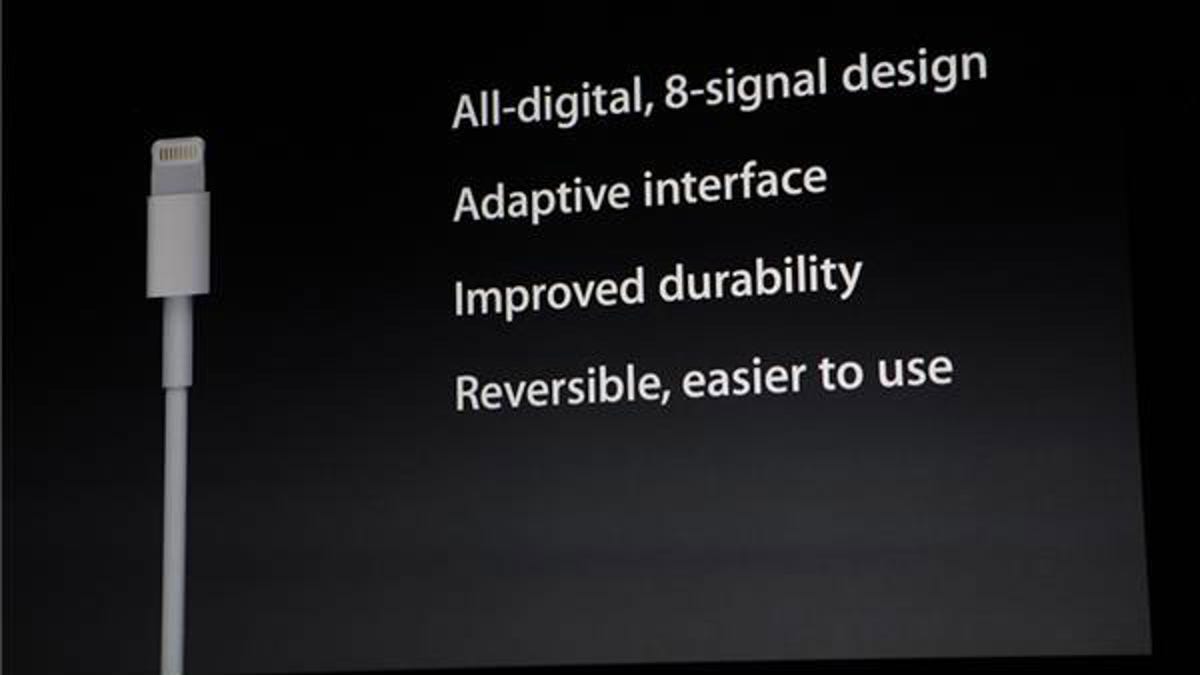Apple's dock connector change is awful, don't kid yourselves
Apple's decision to use a smaller dock connector instead of Micro-USB is consumer-unfriendly, bad for the environment, and offers few, if any, obvious tech benefits.

With this week's iPhone 5 announcement, Apple confirmed many rumors about the new phone, both good and bad. The most disappointing confirmation of all, though, is the resized, redesigned, and still proprietary new dock connector.
Apple calls the new connector Lightning, but giving it a clever name doesn't mean it adds anything but dollars in Apple's bank account.
The company has legendarily built a strong business on licensing its proprietary connection technology to accessory makers, and in selling its own premium cables for a handy $19 each, plus $29 for adapters. But as the rest of the tech industry moves to a standard micro-USB charging format, Apple's decision is unwelcome in a time of smaller budgets for most shoppers and it's ecologically irresponsible, to boot.
The move is all the more disappointing since Apple was, as of last year, actually supporting the International Electronics Commission's push for a universal, micro-USB charging standard.
Phil Schiller told AllThingsD that the dock connector changed because Apple wanted to continue making devices smaller and thinner, and the old dock connector just didn't cut it.
That's true, the old dock connector was pretty big. But you know what's almost the exact same size as the new dock connector? A micro-USB charging port.
And the smaller connector doesn't seem to add a single benefit that would justify its continued proprietary nature -- other than, possibly, Thunderbolt compatibility ("adaptive interface"). Although Schiller presented the new connector as a "feature," Apple isn't touting any faster syncing or charging. In fact, the Lightning to USB cable is a mere USB 2.0, not even 3.0. Lightning? Not so much.
The GSM Association reports that the mobile phone industry produces between 51,000 and 82,000 tons of replacement chargers every year, many of which end up in landfill. The association also notes that a standard charger could eliminate the need for new chargers with each device, reduce packaging, and reduce discarded charging cables, potentially lowering the carbon footprint of the wireless industry by, at minimum, 13.6 million tons per year. Plus, once certified, the chargers are potentially up to three times more energy efficient than unrated chargers, saving energy costs and lowering overall consumption.
That all apparently sounded pretty good to Apple in 2011: it's listed here along with Nokia, Research In Motion, Emblaze Mobile, Huawei Technologies, LGE, Motorola Mobility, NEC, Qualcomm, Samsung, Sony Ericsson, TCT Mobile (ALCATEL), Texas Instruments and Atmel (or "everyone else," if you're keeping track at home) as a signatory to the new, universal standard.
So, what happened? My hope would be that the iPhone 5 designs were already in the works in February 2011 and the company didn't want to change the plans until the next go-around. But Schiller also told AllThingsD that the smaller dock connector "is the new connector for many years to come."
That may be good news for accessory makers -- I'm sure Bose will be happy to sell an upgraded SoundDock or two at $500 a pop -- and it's obviously good news for Apple, the only company currently selling the Lightning to USB and $29 or $39 Lightning adapter.
Note, however, that the adapter product page points out, not all 30-pin devices will be supported, and it won't carry video or iPod-out signals (although, despite some earlier confusion, Apple has clarified that it will support analog audio signals). So, yes, the iPhone 5 and 2012 iPods will probably require some all-new accessories.
That means Lightning is bad news for your wallet and bad news for the landfill, too.
Update: This post has been corrected to note that the Lightning adapter will support analog audio signals. The previous version said it would not.

